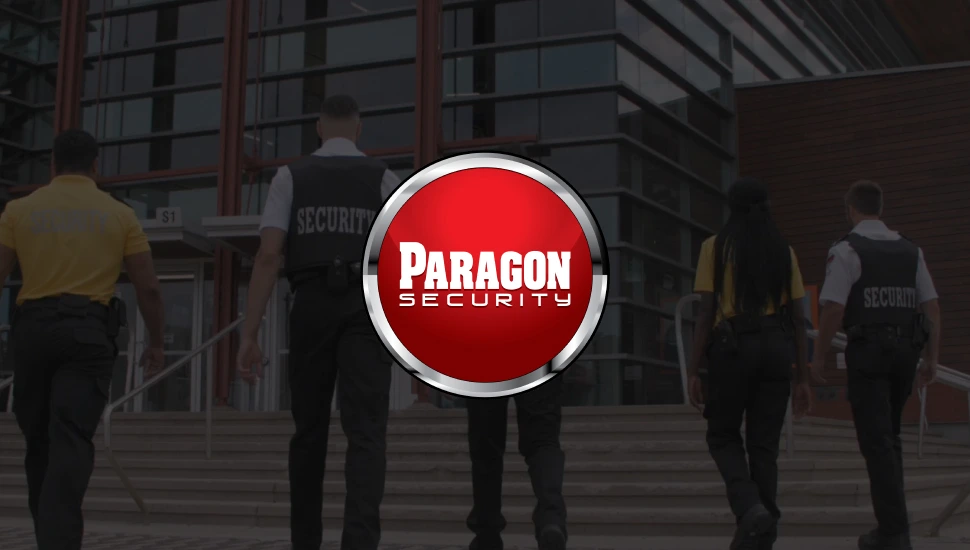Are you a security guard in Ontario looking to take your career to the next level?
This article will explore the exciting advancement opportunities for security professionals like yourself. Whether you’re just starting or have years of experience, there are various paths you can pursue to elevate your role and increase your earning potential.
Experience & Education

Experience and education are necessary and can significantly impact your advancement opportunities as a security professional in Ontario. While formal education is not always a requirement for entering the field, having relevant training and your security license are requirements.
Building experience through on-the-job training and practical work is also crucial. As you gain experience, you become more knowledgeable about security procedures, protocols, and potential risks. This expertise allows you to handle challenging situations and make informed decisions confidently.
Continuing education is equally vital in this industry. Staying updated with the latest advancements in technology, security systems, and emergency response techniques will enhance your skill set and make you an invaluable asset to any team.
Moreover, consider seeking specialized training or certifications in campus security, residential security, healthcare security, or crisis management. These additional qualifications can open doors to higher-paying positions within the security industry.
Remember that while experience speaks volumes when advancing as a security guard, continuous learning should never be underestimated. By combining hands-on experience with ongoing education efforts, you’ll position yourself for growth and take charge of your professional development journey!
Soft Skills

In addition to experience and education, soft skills are crucial for security professionals looking to advance in their careers. These interpersonal skills help guards effectively communicate with others and handle various situations that may arise on the job.
One crucial soft skill is strong communication abilities. Security guards often need to interact with clients, colleagues, and members of the public. Converting information clearly and listening actively is essential for maintaining a safe environment.
Another valuable soft skill is problem-solving. Security professionals must be able to assess challenging situations quickly and find solutions that prioritize safety. This ability can make a significant difference in preventing or mitigating potential risks.
Adaptability is also vital for security guards hoping to move up in their roles. They must be flexible enough to adjust their approach based on changing circumstances or new instructions from supervisors.
Excellent customer service skills can also set security professionals apart as they interact daily with people from diverse backgrounds. Politeness, patience, and empathy go a long way toward ensuring positive interactions with those they encounter while on duty.
Critical thinking enables security personnel to analyze complex situations objectively and make sound decisions under pressure. This skill allows them to evaluate risks effectively and swiftly determine the best action.
By developing these soft skills alongside gaining experience and education, security guards increase their chances of advancing within the field.
Advancement Roles:
Site Supervisor
Site Supervisors play a crucial role in the security industry, providing leadership and guidance to security guards on-site. They oversee operations, ensure compliance with policies and procedures, and maintain a safe environment for employees and visitors.
One of the critical responsibilities of a Site Supervisor is to manage the daily activities of security personnel. This includes assigning duties, monitoring performance, and providing feedback to ensure that guards are carrying out their responsibilities effectively. The site supervisor is also vital in coordinating communication between clients, employees, and other stakeholders.
In addition to managing day-to-day operations, Site Supervisors often act as liaisons between clients and security management teams. They may conduct client meetings or participate in discussions regarding potential improvements or changes to existing security protocols.
Furthermore, Site Supervisors must have strong problem-solving skills to handle any issues or emergencies that may arise during their shift. Whether responding quickly to incidents or making critical decisions under pressure, these supervisors must demonstrate their ability to think on their feet while keeping calm.
To excel as a Site Supervisor requires excellent communication skills. Effective communication helps them convey instructions clearly while also being able to listen actively when addressing concerns from both subordinates and superiors.
Becoming a successful Site Supervisor takes experience working as a security professional combined with effective leadership qualities such as solid communication skills and problem-solving abilities. It’s an opportunity for those who aspire not only for personal growth but also to make positive contributions toward enhancing safety measures within the industry.
Scheduler
The role of a Scheduler is crucial in the field of security services. As security guard gains experience and knowledge, they may have the opportunity to take on the role of a Scheduler within their organization.
A Scheduler is responsible for planning and organizing shifts for security guards at various sites. They ensure proper coverage and that all posts are appropriately staffed. This involves coordinating with site supervisors, security managers, and other team members to determine staffing needs.
In addition to scheduling duties, a scheduler may also track attendance, manage time-off requests, and update payroll records. They must have excellent organizational skills and attention to detail to manage multiple schedules simultaneously.
Being a scheduler requires strong communication skills as they must regularly interact with management and frontline employees. They should be able to effectively convey information about shift changes or updates in an efficient manner.
Becoming a Scheduler allows security professionals to take on more responsibility within their organization while utilizing their experience in the field. It can be an excellent advancement opportunity for those looking for growth in their career as a security guard!
Security Manager or Security Director
A Security Manager or Security Director is responsible for overseeing the overall security operations of an organization or facility. They are tasked with developing and implementing security policies and procedures to ensure the safety of employees, visitors, and assets. This role requires strong leadership skills, as Security Managers and Directors must effectively communicate expectations to their team members and provide guidance when necessary.
In addition to managing day-to-day security operations, Security Managers and Directors also play a vital role in emergency preparedness planning. They collaborate with other departments to develop comprehensive emergency response plans and conduct drills to test their effectiveness. Security Managers and Directors coordinate efforts to mitigate risks and protect individuals on-site during emergencies.
Individuals need technical knowledge, problem-solving skills, and emotional intelligence to excel as a Security Manager or Security Director. They must be well-versed in various security technologies, such as access control, CCTV surveillance, and alarm systems. Additionally, they should possess excellent communication skills to interact with stakeholders at all levels effectively.
Advancing from being a security guard to becoming a Security Manager or Security Director offers exciting opportunities for growth and personal development within the field of security. It allows professionals to utilize their expertise while assuming greater responsibilities in protecting people’s lives and valuable assets within an organization or facility.
Lastly…
The security industry in Ontario offers numerous advancement opportunities for individuals looking to grow their careers as security guards. With the right combination of experience, education, and soft skills, security professionals can climb the ladder and take on more challenging roles.
Starting as a security guard provides valuable hands-on experience in various settings, allowing individuals to develop essential skills and knowledge. Continuously seeking additional training and certifications can further enhance one’s qualifications and open doors to higher-level positions.
Soft skills such as communication, problem-solving, and leadership are crucial for success in any role within the security industry. Developing these skills through continuous learning and practical application can significantly contribute to career progression.
There is no shortage of advancement opportunities within the Ontario security industry if you possess dedication, relevant experience & education, and strong soft skills like effective communication & problem-solving abilities.
By continually developing yourself professionally, you will undoubtedly be well-prepared when advancement opportunities come knocking on your door.
Join a booming industry! With ten years as one of Canada’s Best Managed Companies, a place in the Hall of Fame of Canada’s Most Admired Corporate Cultures, being named Best Employer by Forbes Magazine for three years in a row, and winning the OSPA’s Outstanding Contract Security Company Award, Paragon is one of the fastest-growing companies across Canada.
When you need to add external link but don’t have placement on the page, use this code at the very bottom:
Learn how to obtain your Security guard license from the Ministry of Ontario.
Improve your communication skills with Coursera
Build interview skills with LinkedIn learning.

